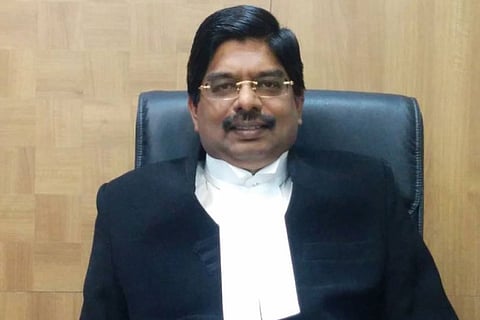

Chennai
Noting that out of the 1,079 sanctioned posts, there exists 401 vacancies of judges in 25 High Courts, including 20 at the Madras High Court, Wilson submitted that nearly one-third of the sanctioned strength is lying vacant and the casualty is the citizens of the country.
Also, pointing out that most High Courts are functioning with only 50 per cent of their sanctioned strength, he said, “Shockingly, it has recently come to light that about 213 names were recommended for appointment by the Supreme Court Collegium. But the government is simply sitting over these recommendations for months together, without getting the approval of the President of India for reasons best known to them.”
“Such an inordinate delay in the processing of the names recommended by the Supreme Court Collegium directly affects the administration of justice, which is a sovereign function,” he added.
Further, on observing that after the NJAC case, the number of judges appointed to the High Courts steadily increased in 2017 (115 judges) and 2018 (108 judges) it fell to a mere 65 judges in 2019, Wilson said, “Simultaneously, due to retirements and elevations, the vacancies continue to increase. Therefore, in my view, if this situation continues, the functioning of the High Courts throughout the country will betotally crippled.”
He also lamented that the recommendation sent by Chief Justices of various High Courts are sat over by the Central Government for months together without forwarding its recommendations to the Collegium of the Supreme Court.
“The recommendations sent by the Supreme Court Collegium are not sent for approval and processed by the Central Government for the President’s approval. The processing of these recommendations should happen within a clear mandatory timeframe. Sometimes, recommendations sent by the Chief Justices of High Courts are returned by the Central Government again and again without any valid reasons,” Wilson said.
Stressing on the aspect that disputes relating to partition among family members is pending for 20 to 30 years and people should not lose faith in the judiciary and adopt extra-constitutional methods due to the delay in disposal of cases, Wilson sought the Prime Minister and Minister for law and Justice to take a decision on the 213 recommendations cleared by the Supreme Court Collegium within a reasonable time period, finalise the Memorandum of Procedure (MoP) with the Supreme Court and ensure that there is a mandatory time-frame in the MoP for each stage of the appointment process.
Visit news.dtnext.in to explore our interactive epaper!
Download the DT Next app for more exciting features!
Click here for iOS
Click here for Android